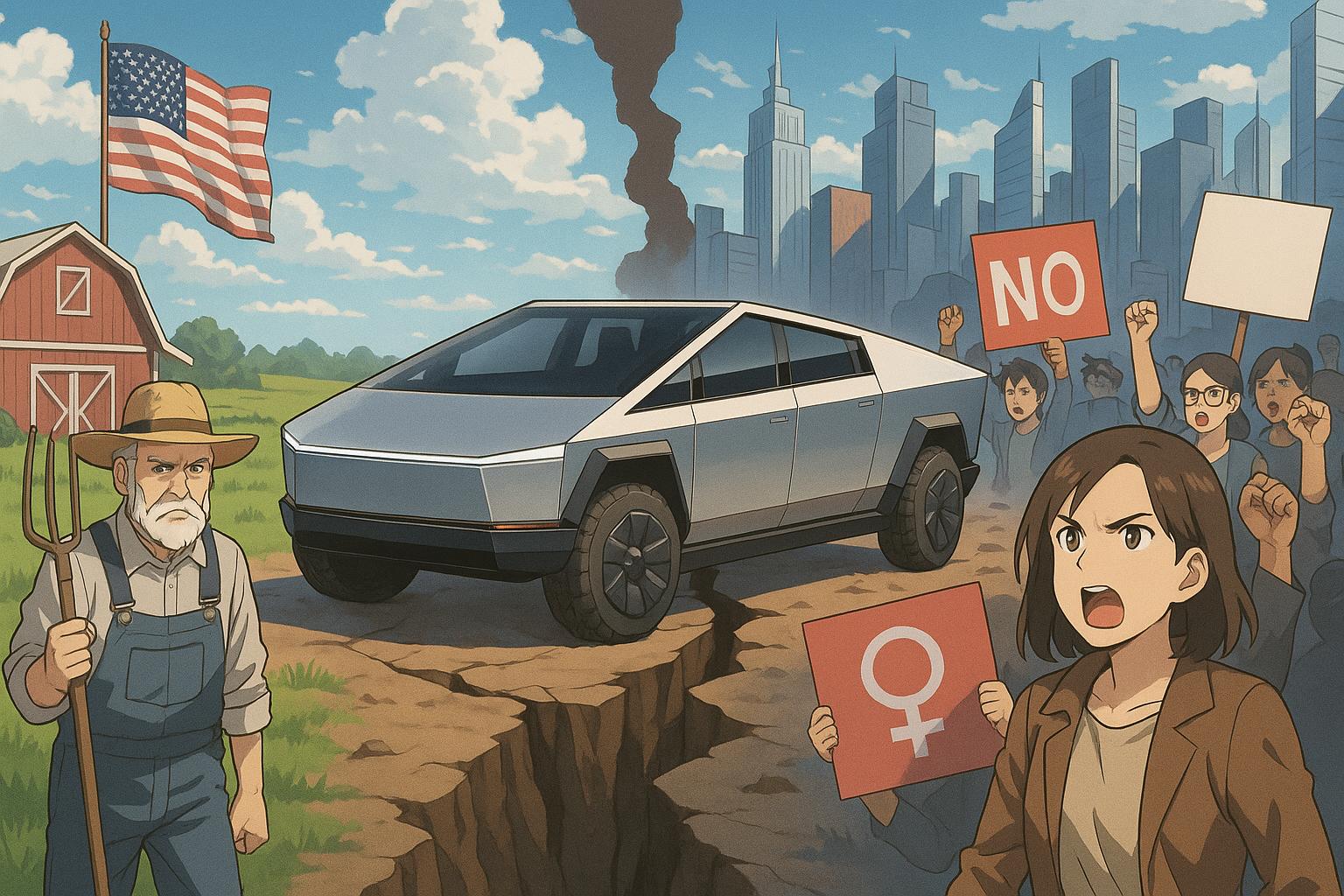As the week winds down, a curated collection of intriguing reads emerges, each offering unique insights into contemporary issues. This selection traverses stark landscapes, varying from the divisive realities of political conflict to the seemingly absurd narratives spun around modern consumer culture.
Louis Theroux's latest documentary, The Settlers, has stirred considerable debate following its release, largely due to its unflinching portrayal of Israeli settlers in the West Bank. Revisiting the region 14 years after his earlier film, The Ultra Zionists, Theroux articulates a heightened sense of urgency about the ongoing conflict. With the Jewish settler population reportedly surpassing 700,000, the film sheds light on the escalation of violence and the systematic displacement of Palestinians, particularly in the sanctity of their homelands after recent military escalations. Theroux's trademark interviewing style is at its best as he engages with figures like Daniella Weiss, revealing a profound zealotry that starkly ignores the Palestinian narrative.
The documentary does not shy away from difficult truths; it includes voices like that of activist Issa Amro, which highlights the harsh realities faced by Palestinians under continued military occupation. Critics, however, note that while the film is impactful, it predominantly highlights fringe perspectives without fully capturing the complex political landscape that shapes these conflicts. Nevertheless, glimmers of hope emerge from the stories of Israeli peace activists who strive to support their Palestinian neighbours, suggesting that compassion can transcend borders, even amidst turmoil.
In a wholly different sphere, the discourse around financial dynamics in relationships takes centre stage with insights from Amal and George Clooney, who reportedly maintain a conflict-free partnership despite vast wealth disparities. Readers of The Guardian contributed their thoughts on navigating finances in a time where economic pressures significantly strain romantic relationships. The anecdotes reveal that issues of money can lead to imbalances and discomfort, particularly for women, as illustrated by one couple's decision to pool finances only after two decades of marriage.
Equally intriguing is the examination of new-age boot camps promising personal transformation. The response to a three-day psychic recalibration retreat in Los Angeles raises questions about the commodification of happiness and self-discovery. As Katherine Rowland recounts her experiences, from screaming therapy sessions to reflective moments of vulnerability, it becomes clear that participants are seeking more than just a superficial fix; they’re yearning for a deeper connection to self amid life’s chaos. Yet, such experiences raise ethical concerns about exploitation disguised as empowerment, igniting a debate about the nature of personal growth.
Meanwhile, the Tesla Cybertruck often elicits bewilderment and sometimes outright disdain from both consumers and critics alike. Launched to considerable fanfare and marketed as a revolution in electric vehicles, it faces a paradoxical existence as a symbol of failure amidst its status as the top-selling electric pickup in the U.S. Despite impressive stats—like an 11,000-pound towing capacity and innovative engineering—the Cybertruck has been fraught with issues including poor sales performance and a litany of design flaws. Its polarising aesthetic has made it a target for criticism, even vandalism, as it becomes inextricably linked with divisive figures and sentiments in contemporary politics.
Although some technological advancements proudly bear the Tesla logo, the vehicle's journey illustrates a broader commentary on the challenges faced by modern enterprises in navigating consumer expectations and political affiliations. A 13% drop in Tesla’s overall sales in early 2025 only accentuates these challenges, as market observers remain sceptical about whether the hype truly matches reality.
These diverse narratives, while widely different in content, reflect a common theme of questioning established norms—whether through the lens of geopolitics, personal finance, self-discovery, or revolutionary tech. Engaging with these stories inspires reflection about our own roles within these frameworks and how we might navigate the complex landscape of the modern world.
Reference Map
- Paragraph 1: 1, 2
- Paragraph 2: 2, 6
- Paragraph 3: 2
- Paragraph 4: 3
- Paragraph 5: 4, 5
- Paragraph 6: 3, 5
- Paragraph 7: 5
- Paragraph 8: 5
Source: Noah Wire Services
